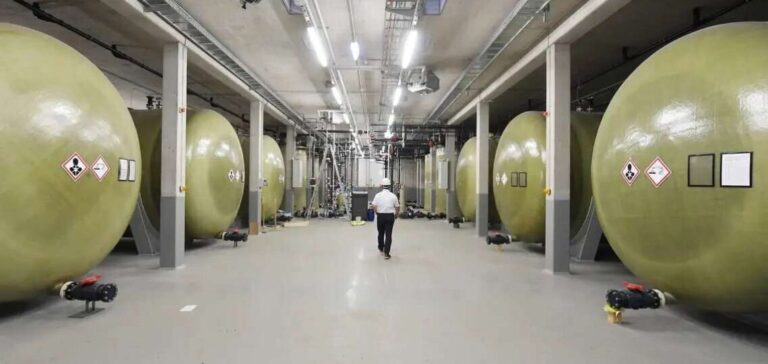Form Energy, a long-term energy storage start-up funded by Bill Gates’ Breakthrough Energy Ventures, has identified and developed a new approach that is low-cost, safe and scalable. This long-term energy storage solution would make it possible to set up a 100% renewable, carbon-free grid.
The Form Energy solution
The aqueous air battery system will be the first commercial deployment of Form Energy’s patented long-term energy storage system, notes PR Newswire. This system exploits some of the safest, cheapest and most abundant materials on the planet, and offers a clear path to long-term energy storage at low processing cost.
The project with Great River Energy will be a 1 MW grid-connected storage system capable of delivering its rated power continuously for 150 hours, far more than the usual two to four hour runtime of lithium-ion batteries deployed at utility scale today. This duration makes it possible to provide the grid with a fundamentally new reliability function based on storage, a function that until now has only been available from thermal generation resources.

Innovative technology
Form Energy doesn’t share many details about its technology, but according to Recharge News Form Energy’s technology uses sulfur as its main ingredient. Form Energy explained that this is an “aqueous air battery system” and that its cost is “ultra-low” compared with lithium-ion batteries. Typical lithium-ion battery storage systems offer four hours of storage. Form Energy’s 150 hours of storage therefore represent an exponential leap forward in technology.
“What we’re looking for are batteries that can use either metals, or other elements that cost much less. An example of this would be sulfur. In fact, the irony is that fossil fuels, which we want to get rid of, are one of the big sources of sulfur,” Form Energy chief scientist and co-founder Yet-Ming Chiang told Recharge News.
Form Energy and Great River Energy
PV Magazine reports that Form Energy’s first commercial project is a 1 MW grid-connected storage system capable of delivering its rated power continuously for 150 hours with Minnesota-based Great River Energy.
Great River Energy is a not-for-profit wholesale electric power cooperative that supplies electricity to 28 member-owner distribution cooperatives, serving 700,000 families, farms and businesses. It is the second largest electric utility in Minnesota.





















